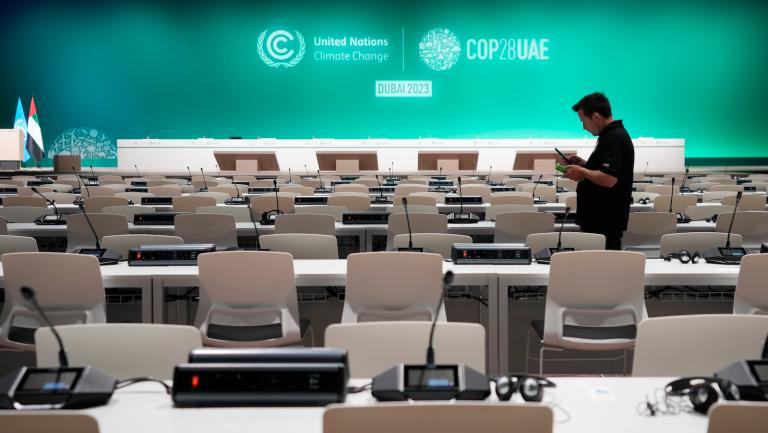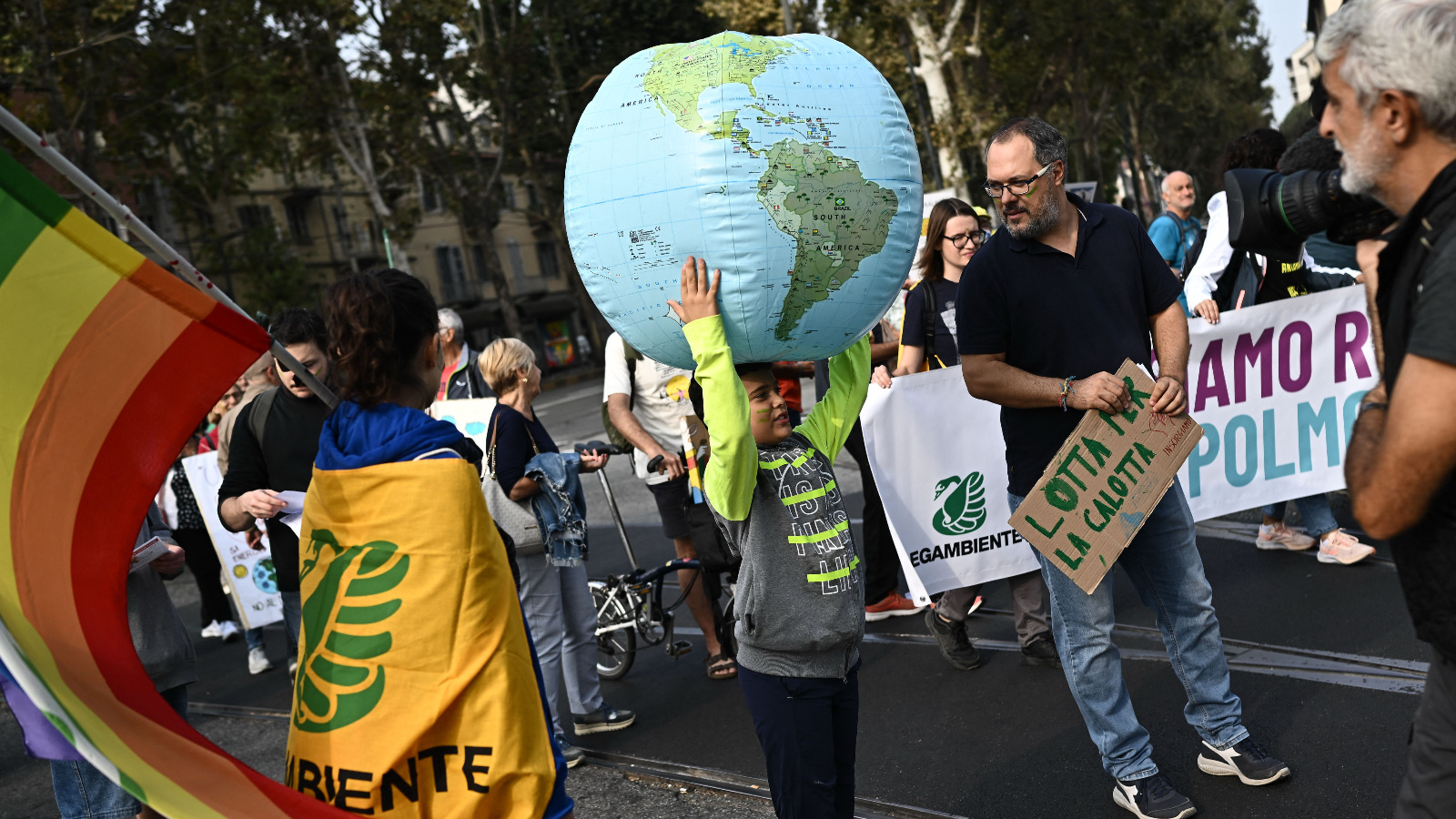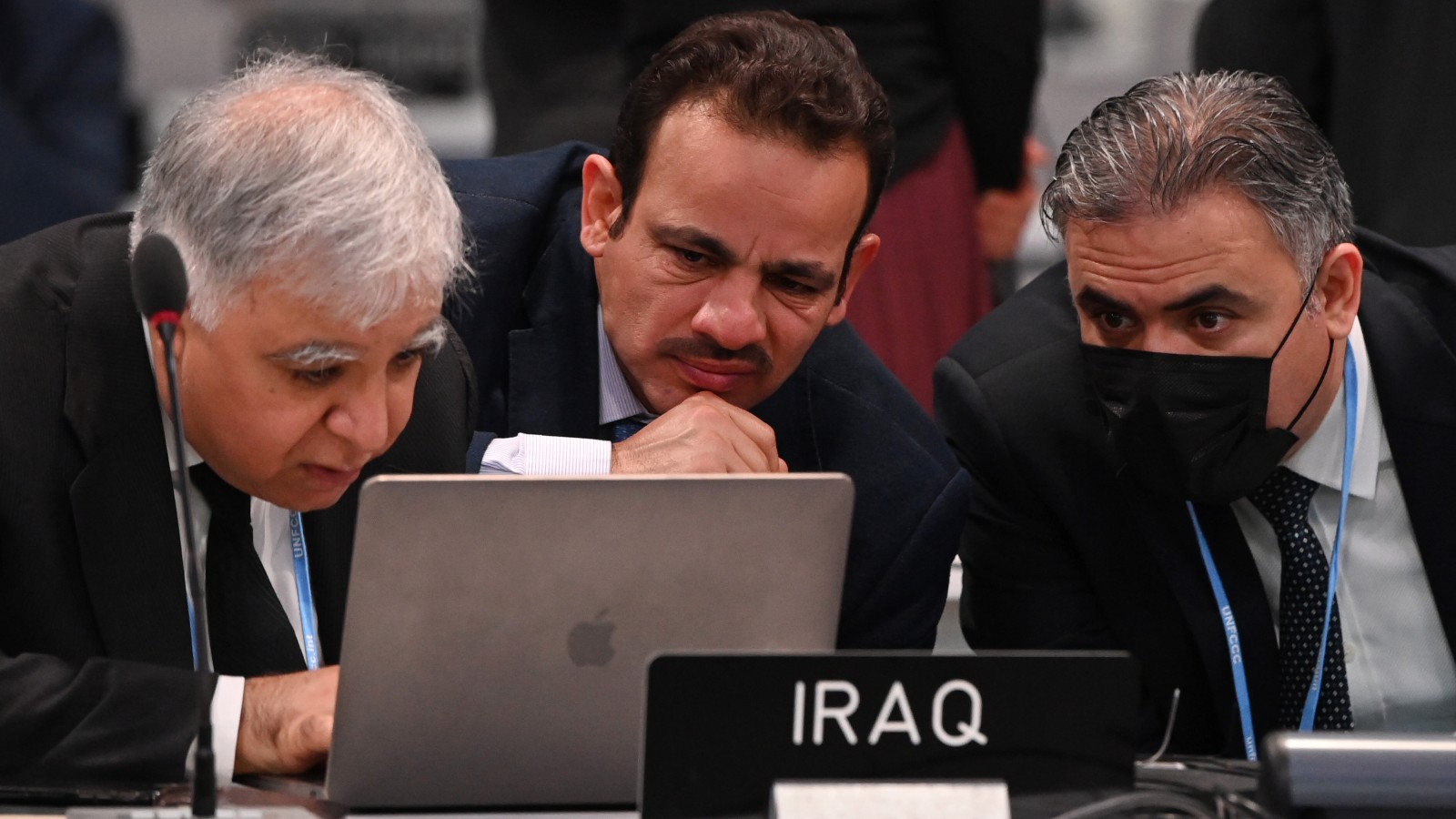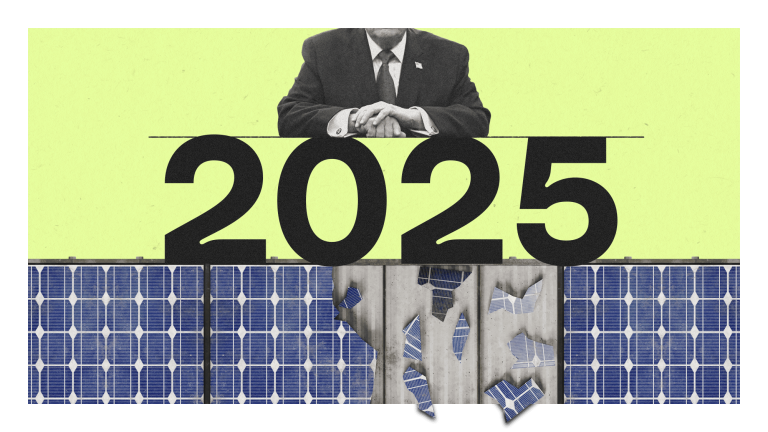More than 70,000 delegates from around the world are gathering at the U.N. climate talks in Dubai this week to negotiate (ostensibly) how to tackle the climate crisis. Many of the important conversations at COP28 will revolve around “loss and damage,” rules for “carbon markets,” and whether to “phasedown” or “phaseout” fossil fuels. Not exactly kitchen-table topics.
“There will be a fair amount of gobbledygook coming out of COP28,” said John Marshall, the CEO of Potential Energy, a nonpartisan, nonprofit marketing firm.
A lot of that jargon is bound to go over people’s heads, but a new survey, the largest of its kind, shows that people around the world want their governments to take action. Some 78 percent of those polled agree that it’s essential to do “whatever it takes” to limit the effects of climate change, according to the survey released on Thursday by Potential Energy, the Yale Program on Climate Change Communication, and other organizations. The research also gauged what messages resonated with people the most. The best one? “Later is too late.”
That fits with the reason people want action: to protect the planet for the next generation. What the report called “generational messaging” was 12 times more effective than other options, such as increasing job opportunities or reducing social inequality. “The thing that moves people the most is putting right in front of them the things that they care about and showing them that those things are at risk,” Marshall said. “It was the leading message in every segment in every country and every age group and every political persuasion.”
According to Marshall, who has 35 years of experience in corporate marketing, keeping the message simple, straightforward, and jargon-free is best. The phrase “later is too late” increased people’s support for immediate action on climate change by an average of 11 percent in randomized controlled trials. It had nearly double the effect of a message about making polluters pay, the runner-up.
While people around the world are united in supporting government action on climate change, some of that support evaporated when it came to specific policies. They were most enthusiastic about clean energy instead of coal and subsidies for renewable energy companies, and least enthusiastic for phasing out fossil fuels and ending subsidies for polluters. Messages that used the words “mandate,” “ban,” or “phaseout” generated 9 percentage points less support, on average, than those that didn’t. For example, only 54 percent were in favor of “banning” gas appliances in buildings, but 74 approved of requiring “better technologies” and “smart upgrades” in all new construction. That could be bad news for popular climate catchphrases like “keep it in the ground.”
“I think the data is saying we need to lean in to the messages that get us the wins, as opposed to the messages that make us feel good about ourselves,” Marshall said. Talking about upgrading appliances and heating and cooling systems and setting clean energy goals increased people’s support for climate policies. The only kind of limitation people liked was reducing pollution. For that reason, Marshall said, it’s important to stress that burning fossil fuels causes pollution that’s overheating the planet.
Among the 23 countries surveyed, the United States had the lowest support for climate policies — but still, nearly 60 percent supported action. Germany, Japan, Australia, Norway, and Saudi Arabia also had relatively low levels of support, suggesting that political polarization and fossil fuel production might have something to do with it. The United States had the biggest difference between liberals and conservatives, with almost a 50 percent gap in policy support. Republicans had the lowest support for climate policies in the world, followed by Germany’s far-right Alternative for Deutschland Party, or AfD. (Just as Republicans once claimed that a Green New Deal would eliminate hamburgers, AfD politicians have warned that elites are trying to take away schnitzel.)
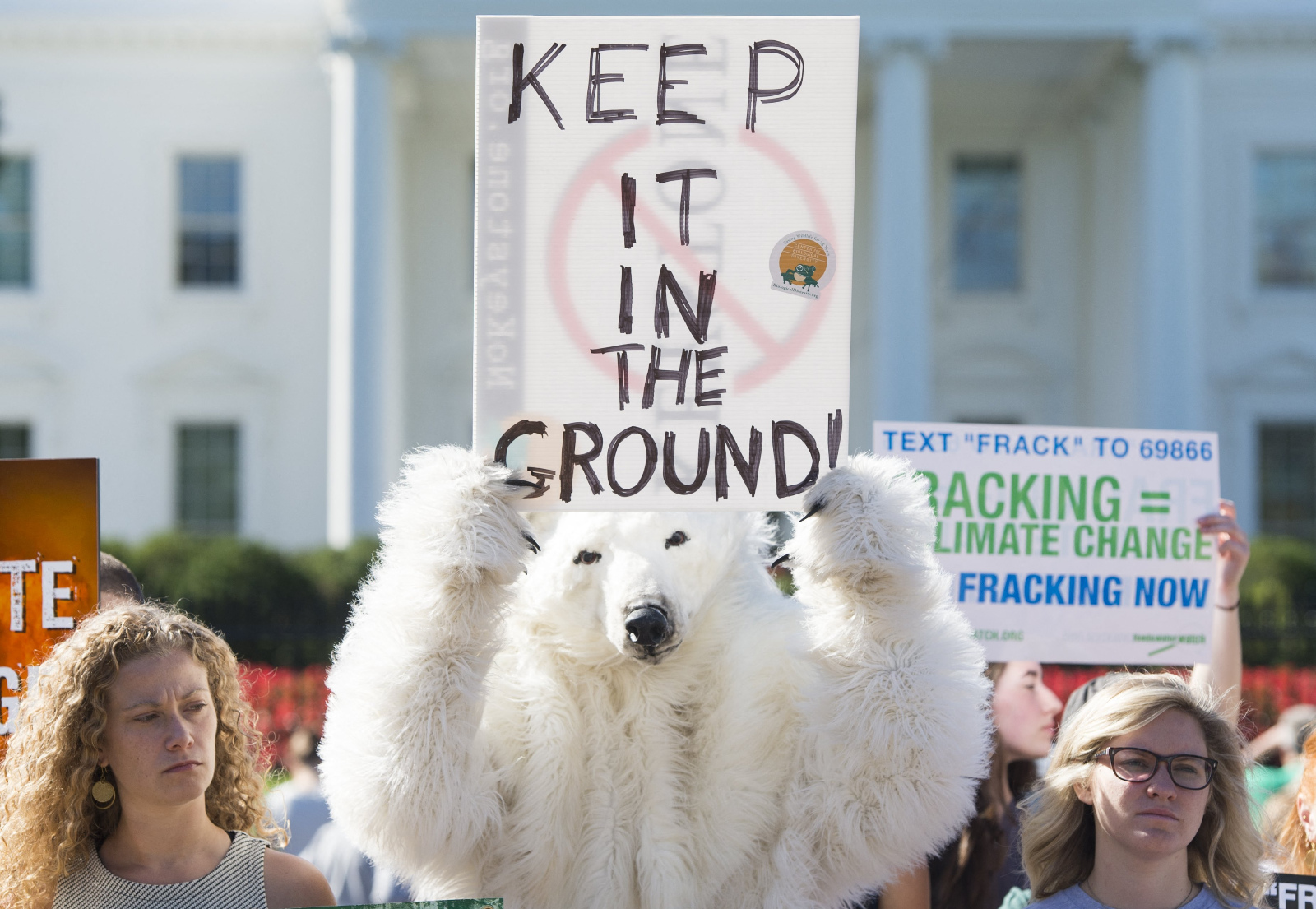
On the other end of the spectrum, Chile, Kenya, Argentina, Colombia, and Indonesia all had strong support for action, with more than 70 percent of people in each country approving the climate policies tested.
In every country, people largely blame the government and businesses for climate change, not individuals, the report found. Only 26 percent of people worldwide said that individuals should be most responsible for tackling the problem.
People often underestimate the popularity of climate action, and Marshall said that it’s a mistake for politicians to shy away from talking about climate change directly. He thinks there’s “too much cleverness going on” when it comes to how to talk about the problem. “It’s the largest crisis that humanity has ever faced, and we feel the need to go in the side door,” he said. “I hope this data helps people not chicken out — like, just go through the front door. It’s not that hard.”
